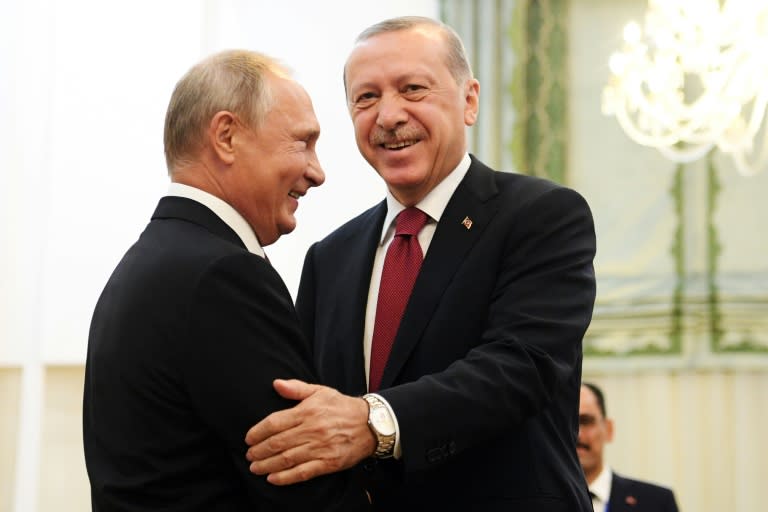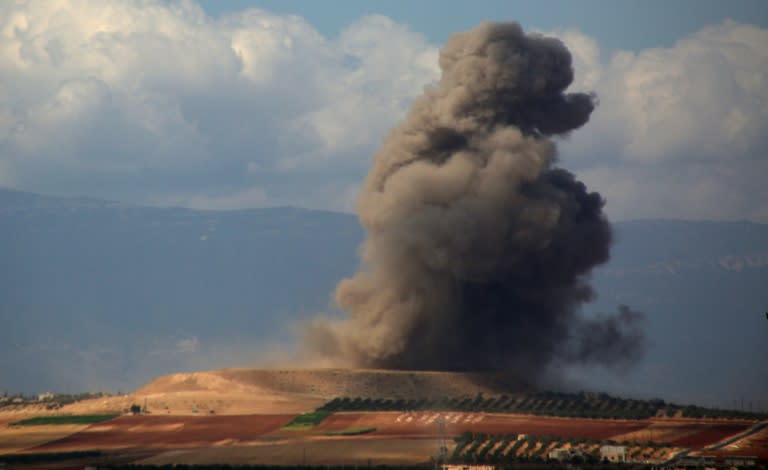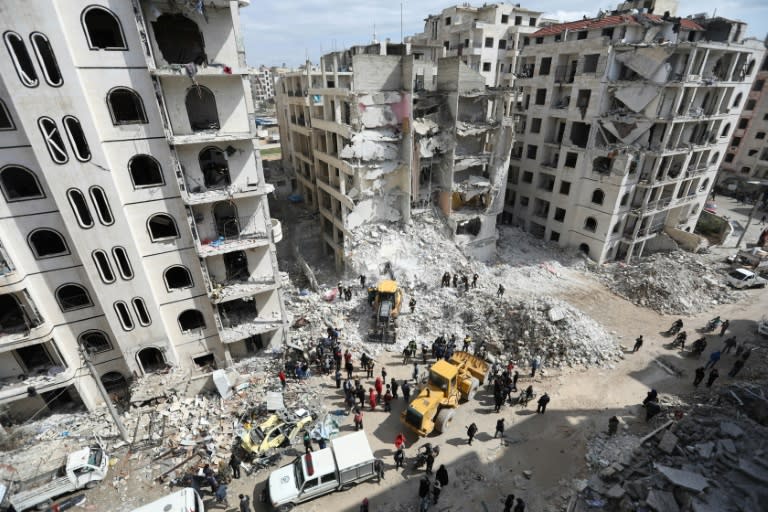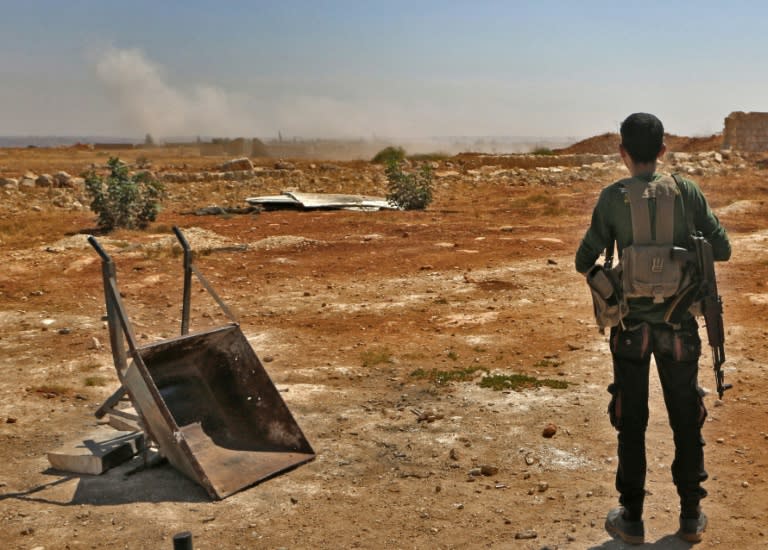Fate of Syria's Idlib in balance at Tehran summit
The presidents of Iran, Russia and Turkey were due to meet Friday in Tehran for talks on the future of Idlib province amid growing fears of a humanitarian disaster in Syria's last major rebel bastion. Two people were killed in the northwestern province by Russian air strikes, according to a monitor, even as Russian leader Vladimir Putin arrived in Iran shortly after his Turkish counterpart Recep Tayyip Erodgan. The two men, shown arriving by plane by Iranian state television, were due to hold talks with Iranian President Hassan Rohani. The three countries are guarantors of the Astana process, a track of negotiations launched after Russia's game-changing 2015 military intervention which has eclipsed the Western-backed Geneva negotiations led by the UN. Iranian and Russian support for Syrian President Bashar al-Assad has shored up the Damascus regime, allowing it to regain the upper hand in the seven-year civil war which has claimed some 350,000 lives since 2011. On Friday morning, Russian air raids pounded rebel positions in the southwest of Idlib province, the Syrian Observatory for Human Rights said. Among them were positions of the jihadist Hayat Tahrir al-Sham (HTS) alliance, as well as of the hardline Ahrar al-Sham group, the Britain-based monitor said. Hundreds of civilians have already begun to flee Idlib as government forces and their allies ready for what could be the last -- and bloodiest -- major battle of the devastating conflict. Seized from government forces in 2015, Idlib and adjacent areas form the final major chunk of Syrian territory still under opposition control. The province is home to some three million people -- around half of them displaced from other parts of the country, according to the United Nations. - 'Horrific scenario' - Neighbouring Turkey, which has long backed Syrian rebels, fears the assault could prompt a flood of desperate Syrians towards its territory. But regime backers Russia and Iran have sworn to wipe out "terrorists" and Assad has declared his determination to retake control of the entire country. Eight leading aid agencies warned Friday that "once again, it will be the most vulnerable who will pay the heaviest price". They appealed to world leaders to "urgently work together to avoid this horrific scenario". The Tehran talks could determine the scale and the timeline of the Idlib offensive, which the UN has warned may displace some 800,000 people. Iranian television reported the three leaders would each have "bilateral meetings" on the sidelines of the main summit. They are also due to hold a press conference. Just hours later, the UN Security Council will also meet, at Washington's request, to discuss Idlib. Russia wants Turkey, which borders the province, to use its influence to rein in the dominant group Hayat Tahrir al-Sham, led by the former Al-Qaeda branch in Syria, as well as rival rebels. Turkey has limited sway over the jihadists who control an estimated 60 percent of the province, but it backs other rebel groups and has 12 military "observation points" across the area. Idlib's population has swelled as the regime chalked up a series of victories across the country, reaching evacuation deals that saw tens of thousands of people bussed there. - 'Liquidation of terrorists' - Russia has said the Syrian army is preparing to solve the problem of "terrorism" in the rebel stronghold and reiterated Friday that its position had not changed. "A total and definitive liquidation of the terrorists across all of Syria's territory is necessary," said Russian foreign ministry spokeswoman Maria Zakharova. She stressed however that Moscow "is doing everything in its power to ensure that human losses and harm to Idlib's civilian population is limited as much as possible". Her Iranian counterpart, Bahram Ghassemi, assured Damascus of Tehran's support and willingness to "continue its role as adviser and help" for the Idlib campaign. Al-Watan, a Syrian newspaper close to the government, reported Monday the military operation could "immediately follow the summit". Analyst Sam Heller with the International Crisis Group said there was some hope of a deal. Any new flood of refugees towards Turkey would come at a time when Ankara is "vulnerable," he told AFP, adding it would be a "huge new burden on Turkey and would overwhelm its humanitarian capacities." "I don't think that either of these countries, or really anyone, has an interest in doing something which is genuinely destabilising to Turkey," he added.






